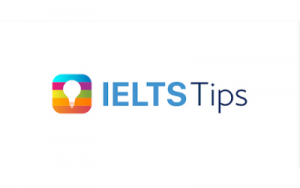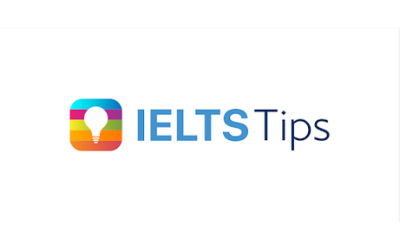TOPIC 6: Healthcare, health and sport
 13/12/2023
13/12/2023
 Tác giả :monamedia
Tác giả :monamedia
Source: Cambridge Level: Intermediate & Advanced
Edited by mcielts.com Phone: 0286 676 9900

TOPIC 6: Healthcare, health and sport
About the topic
The Healthcare, health and sport topic includes health problems and disabilities (physical and mental), ways of keeping fit and healthy, diet/nutrition and exercise, ways of providing (and educating people about) healthcare and health services, medical innovations and treatments, the benefits and management of common sports.
This is one topic especially where you need to remember not to give personal stories about yourself or people that you know in the Task 2 Writing!
Topic 3 example Task
Many doctors are concerned about the high use of computer games by children and young people. What mental and physical problems may arise from excessive use of these games? How could these problems be reduced?
Band 9 model essay
Children appear to enjoy playing video games, and while there are undoubted benefits, various negative effects stem from this too. Let us consider the main issues, and then outline possible remedies.
Perhaps the major physical problem is the sedentary lifestyle which these games encourage, meaning that youngsters may incline to obesity or inadequate development. Added to this is the strain on eyesight resulting from excessive use of screens and consoles, meaning that children may suffer symptoms of poor vision. There are also concerns aboutimpairment of reflexes due to the repetitive nature of the hand muscles when playing these games, and about the poor diet of convenience food which often accompanies this lifestyle.
The most alarming psychological impact of such activities is possibly the risk ofaddiction, meaning that children become obsessed with the games and are unable tosocialise with family or peers. This undermines their interpersonal skills and makes them underperform both academically and socially.
Turning to possible solutions, perhaps the immediate step would be to promote a moreactive lifestyle through exercise regimes or sports programmes which would help todetoxify the lifestyles of children affected. This could be done through sponsorship of sports, or participation in competitive events such as races or matches, hopefully ameliorating the physical effects of excessive games use. Potential remedies for the danger of mental addiction may be, firstly, an initiative to raise awareness of the risks of the situation, for example through health warnings on games packaging or through high-profile spokespersons spreading such a message. For example, if sports champions or figureheads speak out about these dangers, the message may well get through to children.
To sum up, the risks posed by excessive gaming are connected to an unhealthy lifestyle and the possibility of dependency on the activity. Possible answers might involve stronger education about the dangers and the health benefits of more active pursuits.
(313 words)
EXPLANATION OF THE TOPIC VOCABULARY
To stem from (bắt nguồn từ) = to come or derive from, often used for negative things
E.g. A lot of delinquency these days stems from the use of drugs or alcohol.
Sedentary lifestyle (ngồi nhiều, ít đi lại) = a lifestyle where people sit for long periods and are generally inactive
E.g. I used to keep fit, but since I started working as an architect my lifestyle had become mostly sedentary.
Obesity (béo phì) = the medical condition of being seriously overweight
E.g. In some countries, obesity is the major cause of death among young adults.
Inadequate development (sự phát triển không đầy đủ) = insufficient or obstructed growth of the body
E.g. If children smoke, this can cause inadequate development of their lungs and brains.
Strain (sự căng thẳng) = stress or overwork, physical or mental
E.g. I had to take a vacation due to the strain of working such long hours.
Symptoms (triệu trứng) = indications that a medical problem is present
E.g. A sore throat and headache are symptoms of a cold or flu.
Impairment (sự suy yếu) (verb = to impair = to hinder or damage an ability)
E.g. His hearing was impaired when he heard a loud explosion as a child.
Poor diet (chế độ ăn uống kém dinh dưỡng) = a lifestyle diet without sufficient nutrients
E.g. Malnutrition happens due to a poor diet and lack of medical care.
(‘a diet’ can also mean a programme of reduced calories intended to help you lose weight: ‘My sister is always trying new diets because she wants to lose 2 kilos before the summer’)
Convenience food (thực phẩm ăn liền) = food which is cooked in its packaging, usually in a microwave
E.g. British and American people eat a large amount of convenience food.
Addiction (sự nghiện ngập) = the state of being unable to live without something
E.g. Many young people are addicted to social media or Internet use.
To socialise (xã hội hóa, giao tiếp xã hội) = to meet with friends and other people in a friendly way
E.g. At weekends, I like to socialise at parties and in cafes with my old friends.
Interpersonal skills (kĩ năng giao tiếp và kết nối) = the skills of dealing with people successfully
E.g. My boss used to be very annoying, but then he went on a course to develop proper interpersonal skills.
To underperform (thể hiện kém) = to perform below your peers or expectations
E.g. My football team are underperforming badly this year.
Active lifestyle (phong cách sống năng động) = a lifestyle with proper exercise and fitness
E.g. The government tries to promote an active lifestyle, but this is not successful.
A regime, a programme (chế độ, chương trình) = a planned system of exercise, diet or sport
E.g. I adopted a vegetarian regime for three months before my exams.
(‘regime’ also means a very strict government: ‘In the 1970’s, many South American countries were ruled by police regimes.’)
To detoxify your body (giải đọc cơ thể) = to remove impurities and poisons
E.g. I went to a clinic to detoxify because I was eating too much fatty food.
Sponsorship (tài trợ) = payment from a company to a sport or other activity in return for publicity E.g. Motor racing is often sponsored by energy drink brands.
Participation (sự tham gia) = to participate in something = to join and take part in it
E.g. I participated in wrestling when I was at college, but then I gave up.
Competitive (cạnh tranh) = the adjective of ‘competition’
E.g. Canadians are very competitive about ice hockey teams.
Ameliorating the physical effects (cải thiện thể chất) = to ameliorate = to make a problem less damaging
E.g. The effects of his injury were ameliorated by extensive physiotherapy.
Remedies (phương thuốc) = cures or answers to a problem or situation
E.g. There are many remedies for cold and flu available in pharmacy stores.
An initiative (sáng kiến) = a new programme or idea, usually in government or business
E.g. We need initiatives to tackle obesity, anti-social behaviour and delinquency.
Raise awareness (nâng cao nhận thức) = to make people more aware of or caring about an issue
E.g. We organised a marathon to raise awareness of heart disease and ways to prevent it through exercise.
Health warnings (cảnh báo sức khỏe) = notices on cigarette or alcohol packaging warning about the medical
effects
E.g. Almost all countries have health warnings on tobacco these days.
Champions (nhà vô địch) = highly successful people in sport or business
E.g. Roger Federer is a champion tennis player, and a good role model too.
Figureheads (người có sức ảnh hưởng lớn) = people who represent part of society, officially or unofficially
E.g. The singer Adele is a figurehead for many young women these days.
Dependency (sự lệ thuộc) = the condition of relying on something in an addictive way
E.g. The player was treated for drug dependency at a detox clinic in Paris.
Pursuits (thú vui) = hobbies or sports which people do for enjoyment
E.g. Skiing and cycling are my main pursuits at weekends.







